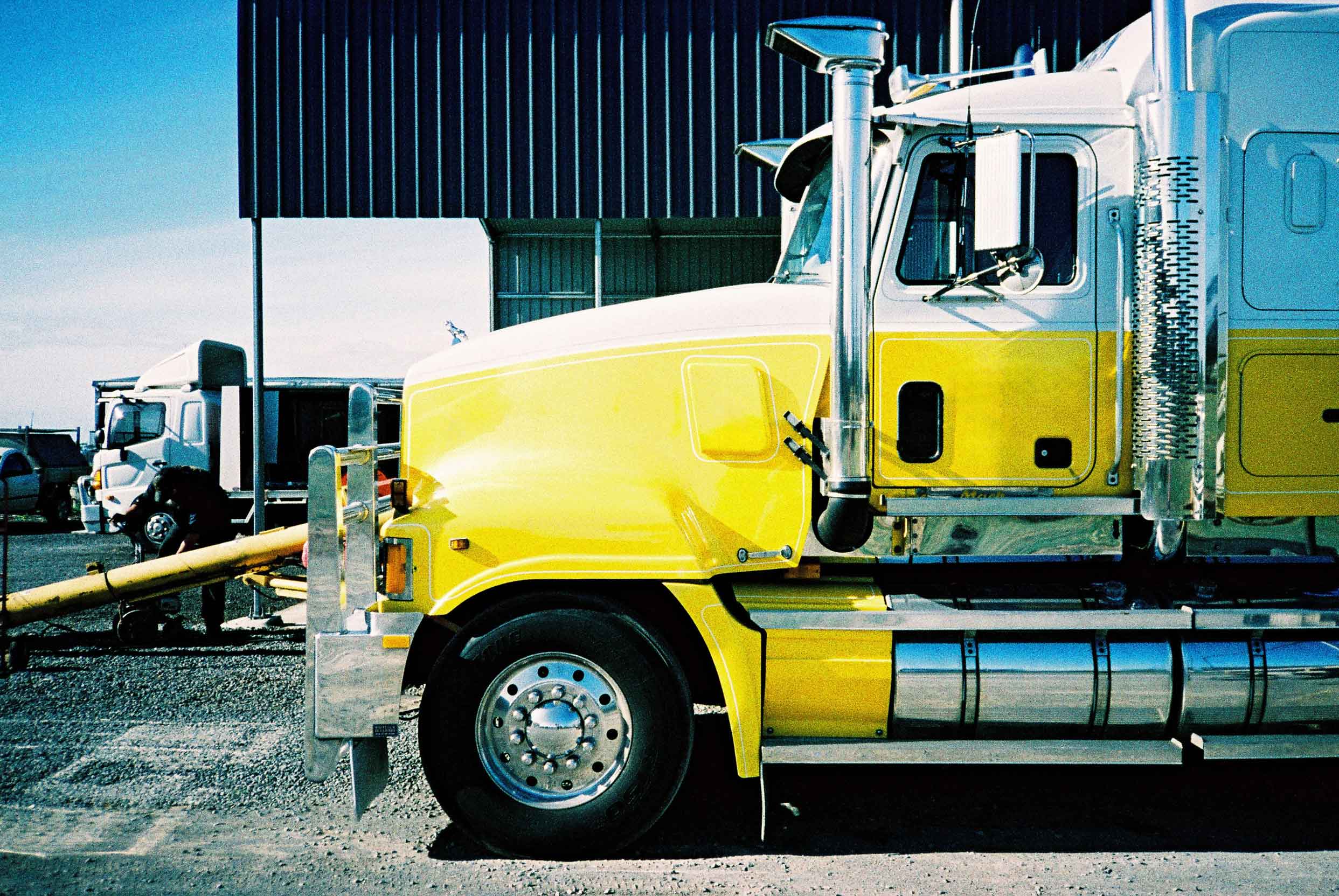

How to Keep Your Fleet Compliant with DEF and Other Essentials
By Grainger Editorial Staff 8/21/25
Fleet compliance depends on more than meeting emissions rules. With DEF and other critical fluids, proper storage, contamination prevention and seasonal planning can help avoid downtime and fines. Learn how smart fluid management keeps fleets safe, efficient and prepared for changing regulations.
Fleet managers are expected to keep vehicles on the road while also meeting fluctuating emissions standards. Diesel exhaust fluid (DEF) plays a key role, especially for vehicles with selective catalytic reduction (SCR) systems. But DEF is just one of several fluids that help support performance and compliance.
Monitoring and properly storing DEF, coolant and other essential fluids can help prevent delays, avoid fines, and keep your fleet ready for what comes next.
Why Diesel Exhaust Fluid Matters
Because of its role in SCR systems, DEF is essential to how many diesel engines meet federal emission standards. These systems convert harmful gases into nitrogen and water vapor to help meet U.S. Environmental Protection Agency (EPA) standards.
Tampering with or misusing DEF or SCR systems can result in serious compliance risks. The EPA may issue fines of up to $5,000 per vehicle for violating emissions control laws, including bypassing or mishandling these systems.
Some regulatory rollbacks in 2025 have eased requirements for light-duty vehicles. However, the regulatory environment continues to evolve, especially for heavy-duty fleets preparing for upcoming emissions standards, including those set to take effect in 2027.
Contamination or improper storage can also reduce system performance. Following best practices for handling helps maintain fluid quality and reduce the risk of downtime.
Storing & Handling DEF Safely
Diesel exhaust fluid is sensitive to temperature, light and contamination. While not classified as hazardous, DEF must meet ISO 22241 quality standards and should be stored and handled following OSHA best practices and general chemical safety protocols. Improper storage or handling can reduce its effectiveness and may damage emissions systems.
According to the American Petroleum Institute (API), actions to help maintain DEF quality include:
- Store DEF in sealed containers in a cool, shaded area between 15 degrees F and 77 degrees F
- Use only dedicated pumps, hoses and funnels to prevent contamination
- Only clean dispensing equipment with distilled or de-ionized water
DEF may freeze at or below 12 degrees F. Freezing won’t damage the fluid, but expansion can cause stress on the container. Let it thaw naturally and avoid repeated freeze-thaw cycles when possible.
Checking lot numbers, manufacturing dates and rotating stock as needed can help ensure DEF quality. If storage conditions may have changed, tools like refractometers are sometimes used to help verify urea concentration.
Plan for Seasonal Demand
Once DEF is stored correctly, the next step is making sure it's available when needed. Strategic inventory planning can help reduce delays and support uptime. DEF consumption can increase during busy operating seasons or with extended vehicle use, and regional usage patterns may vary. Planning ahead based on past trends can help prevent downtime and support overall reliability.
Monitor Other Critical Fluids
In addition to DEF, other fluids play an important role in day-to-day vehicle performance. Antifreeze and coolants help regulate temperature in both traditional engines and electric vehicles, protecting key components from freezing or overheating. Brake cleaners and windshield washer fluids are critical for ensuring visibility and reliable performance in harsh weather. Keeping these fluids stocked and stored correctly can help prevent delays and reduce wear on critical systems.
Keep Your Fleet Ready Year-Round
Regulations and equipment needs will continue to change, but focusing on proper storage, handling and inventory planning can help keep your fleet compliant and prepared.
DEF is just one part of a broader strategy. Keeping essential fluids, safety gear and emergency tools stocked and properly maintained can help reduce downtime and keep operations on track.
Frequently Asked Questions
While DEF can freeze and thaw without issue, it can degrade when exposed to heat or air. According to the American Petroleum Institute (API), DEF shelf life depends on storage temperature. It can last up to 36 months if stored below 50 degrees F, but shelf life drops to 6 months or less when stored at 95°F or above. Always store in a cool, shaded area to maximize shelf life.
Even small amounts of fuel or oil can degrade DEF and harm emissions systems. Use only clean, dedicated equipment to avoid issues. Avoid storing or allowing DEF to come into contact with containers or tools made of metals like copper, brass or aluminum, since it can compromise fluid quality.
Contaminated DEF can damage the emissions system and cause the engine to lose power or limit performance. It’s important to regularly inspect for discoloration or strong odors that can signal possible contamination.

Safety Management
6 Tips to Help Prevent Slips, Trips and Falls
Identify the fall hazards in your workplace and implement a fall safety program. Check out these tips from Grainger so you can mitigate risk.
![]() Our Latest KnowHow
Our Latest KnowHow

Facility Pest Control: How IPM Helps Safely Manage Insects
Discover safe, compliant pest control with IPM. Find tips for insect monitoring, sanitation and safe insecticide use in commercial facilities.
The information contained in this article is intended for general information purposes only and is based on information available as of the initial date of publication. No representation is made that the information or references are complete or remain current. This article is not a substitute for review of current applicable government regulations, industry standards, or other standards specific to your business and/or activities and should not be construed as legal advice or opinion. Readers with specific questions should refer to the applicable standards or consult with an attorney.














